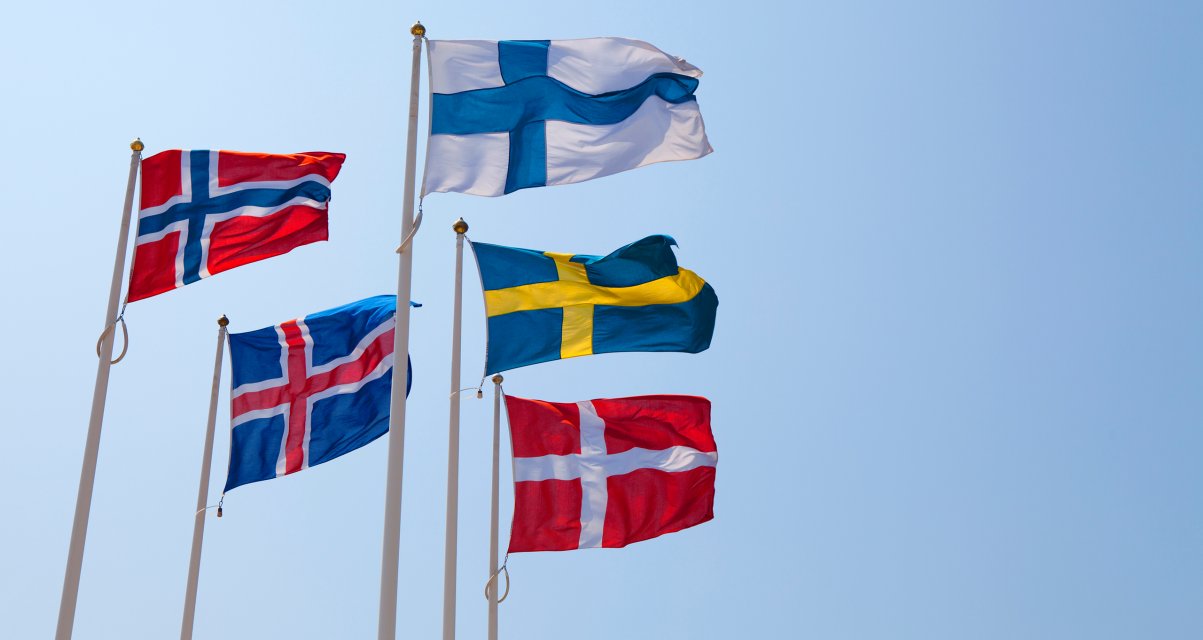Academic Freedom in the Nordics: Legislation, Practice, Challenges
Academic freedom in the Nordic countries is under pressure from a range of factors that must be addressed to maintain the region’s leadership in independent research and education.

31.10.2024
The report presents accessible information on the conditions for academic freedom in the Nordic countries. It is written by representatives of Nordic trade unions organizing academics at higher education institutions.
While the Nordic model has long been a global benchmark, challenges such as managerialism, external funding dependence, undue political interference, precarious employment, and the hardening of public debate threaten the core principles of academic freedom. We, Nordic academic trade unions, are united in our commitment to protecting this freedom, ensuring that it remains a foundation of democratic societies and intellectual progress.
Key points to defend academic freedom in the Nordics
1. Diminished collegial governance and academic autonomy
Academic freedom is about the individual right to research and teach freely, and about collegial governance within academic institutions. The shift toward centralized governance models, where management holds the decision-making power, reduces the academic staff’s autonomy and innate capability to determine the direction of research and teaching. Collegial governance is a key mechanism for protecting academic freedom. Trade unions call for restoring democratic decision-making processes that give academic staff a meaningful role in shaping the policies and priorities of their institutions, thereby safeguarding the collective aspect of academic freedom.
2. External pressures and funding dependence
Academic freedom relies on the ability of researchers to pursue knowledge without external interference. However, across the Nordic countries this independence is threatened by an increased reliance on support from industry, or funding tied to parameters identified by the government, related to specific outputs, or targeted to certain subjects to the detriment of others. Researchers increasingly find themselves adapting their work to meet the priorities of commercial or governmental funding bodies, which results in the loss of critical and curiosity-driven research that may not have equally immediate applications yet lays the foundations for democratic resilience and future research breakthroughs. Trade unions call for public funding that is secure, untied and not based on quantitative performance indicators. Such public funding is essential to protect the autonomy of academics and ensure that research remains driven by scholarly inquiry rather than external agendas.
3. Political and ideological influence
Undue political interference is a direct threat to academic freedom, as it undermines the independence of institutions that are supposed to serve as critical voices in society. In several Nordic countries, government regulation is increasingly shaping higher education and research priorities, which can compromise the objectivity and integrity of academic work. The ability to freely explore and critique societal and political issues is at the heart of academic freedom. The trade unions call for stronger protections to ensure that universities remain free from political control, allowing researchers and educators to engage in independent analysis and critique, vital for a healthy democracy.
4. Precarious employment
Secure employment is a prerequisite for true academic freedom. Short-term contracts and employment conditional on external funding make academics vulnerable, compelling them to avoid innovative, long-term, and high-risk research to safeguard their career prospects. This situation undermines the freedom to conduct research without fear of losing one’s job, a fundamental element of academic freedom. Nordic unions argue that long-term, stable employment is crucial to fostering an environment where academics can challenge established norms and pursue innovative ideas without constraint, thereby fully exercising their academic freedom.
5. Harassment and threats to free expression
The right to express controversial or unpopular opinions is a core component of academic freedom. However, increasing instances of harassment and intimidation against academics in the Nordic region are eroding this freedom. Academics, particularly those engaged in sensitive or politically charged research, face threats that can lead to self-censorship. Academic freedom is compromised unless academics can speak and publish without fear of retaliation. Trade unions are pushing for stronger protections and support systems to ensure that academics can freely participate in public discourse and engage in critical research without facing personal or professional harm.
Conclusions
In conclusion, each of these challenges directly impacts academic freedom, a foundational principle for independent research, higher education, and democratic engagement. By addressing these issues – whether through securing public funding, resisting political influence, ensuring job security, reinforcing collegial governance, or protecting free expression – the Nordic region can continue to serve as a model for academic freedom globally. Immediate action is essential to preserve these freedoms and maintain the integrity and innovation that have long defined Nordic academia.
About the report
This is a report written by representatives of Nordic trade unions organizing academics at higher education institutions. It is an attempt to assemble and present accessible information on the conditions for academic freedom – both de jure and de facto – in the Nordic countries. Besides laying out a framework for comprehending academic freedom as a public good and an international obligation, we offer an overview of common challenges and what is particular to each country in separate national chapters from Denmark, Finland, Iceland, Norway and Sweden.
Recommendations
To safeguard and enhance academic freedom the Nordic countries should ensure that their laws and regulatory practices are up to the task. The recommendations in the report provide a framework for ensuring comprehensive protection of academic freedom under the Nordic constitutions and other relevant national laws and in compliance with the Nordic countries’ international and European legal obligations.
